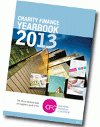A recent decision by the tax tribunal in favour of the British Film Institute could open the floodgates for more cultural charities to claim their admission fees should be exempt from VAT.
Last year, the BFI brought a case before the First-Tier Tribunal (Tax and Chancery) that the VAT exemption that already applies to “cultural services” such as museums, art galleries and theatre performances should also cover admissions to cinema screenings hosted by charitable bodies.
The British Film Institute runs the BFI Southbank and the BFI Imax (pictured), the BFI National Archive and BFI Reuben Library, and is a charity governed by a Royal Charter.
According to Withers’ VAT expert Graham Elliott, the BFI's case relied upon a direct reference to European law and contended that the UK’s interpretation of the exemption was wrong, in that it was overly restrictive.
He said the charity’s argument revolved around the meaning of the word ‘certain’, because the European legislation says certain cultural services qualify for the exemption. HMRC had claimed that this meant it could pick which ones qualify and which ones don’t, but the BFI contended that the word ‘certain’ was superfluous.
The BFI’s lawyers cited a number of previous European-level cases which made clear that the word ‘certain’ cannot be used as an excuse to deny exemptions to different types of charity.
Elliott said that the implications of the decision could reach much wider than just the BFI, or even charities that show films. “As HMRC admitted in their evidence, this is a floodgates issue,” he said. “If a cinema is cultural, in a sense what isn’t? How wide are the boundaries of ‘cultural services’?”
He suggested that charities that run botanical gardens or stand-up comedy shows could conceivably argue now that their admission charges should be VAT-exempt.
“It does beggar a huge definitional boundary question - what will be regarded as sufficiently cultural? It does have a fairly broad application I think.”
Elliott said that HMRC may choose to appeal the decision, but he doubted it would have much success.
“It’s a very welcome development that the UK legislation had been overly restrictive and had strange omissions in it that were unfair,” he said. “The decision looks extremely convincing and if there is an appeal my prediction would be that the appeal will be unsuccessful and the decision will continue to stand.”

| Charity Finance Yearbook The Charity Finance Yearbook is the ultimate reference source for charity finance professionals. Providing updates, advice and trends on accounting and auditing, VAT and taxation, investment and banking, social investment and funding, legal matters, governance, impact, risk, IT and HR. |









